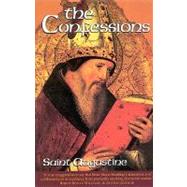


These words are parts of all sorts of texts: doctrinal works on free will and providence, commentaries on books of the bible, debates with opponents, letters to all sorts of people.Īugustine set the agenda for Christian theology and was a profound influence on the development of human thought in the West. How do we know all these things? Because Augustine tells us himself.Īugustine wrote over five million words, or, more precisely, dictated them to professional scribes. Reading those first paragraphs of his questioning God, I felt like I recognised an author for the first time. My earliest layer of marginal notes say, “Why start with questions? He’s doing it because he’s human.” But who calls upon you when he does not know you? You are great, Lord, and highly to be praised … grant me, Lord to know and understand which comes first – to call upon you or to praise you, and whether knowing you preceded calling upon you. I was 16 the first time I read Augustine’s opening paragraphs.

I’m going to talk about three of these moments, stretched over more than 20 years. Different books in Confessions have spoken to me at different times of my life, a sure sign of the richness of this ancient text. There are 13 books in his Confessions nine are biographical narrative, and the final four are a meditative analysis of Augustine’s state of mind and soul at his time of writing. We do this as we get older – Augustine was in his late forties when he wrote this retrospective about how he came to be who he was: a Christian bishop in North Africa in the late 4th century CE. Wikimedia CommonsĪugustine’s Confessions is a book about making meaning out of life, about looking back in order to find the right story. The earliest portrait of Saint Augustine in a 6th century fresco, Lateran, Rome.


 0 kommentar(er)
0 kommentar(er)
